Asparagus Weed Control: Tips For Using Salt On Asparagus Weeds
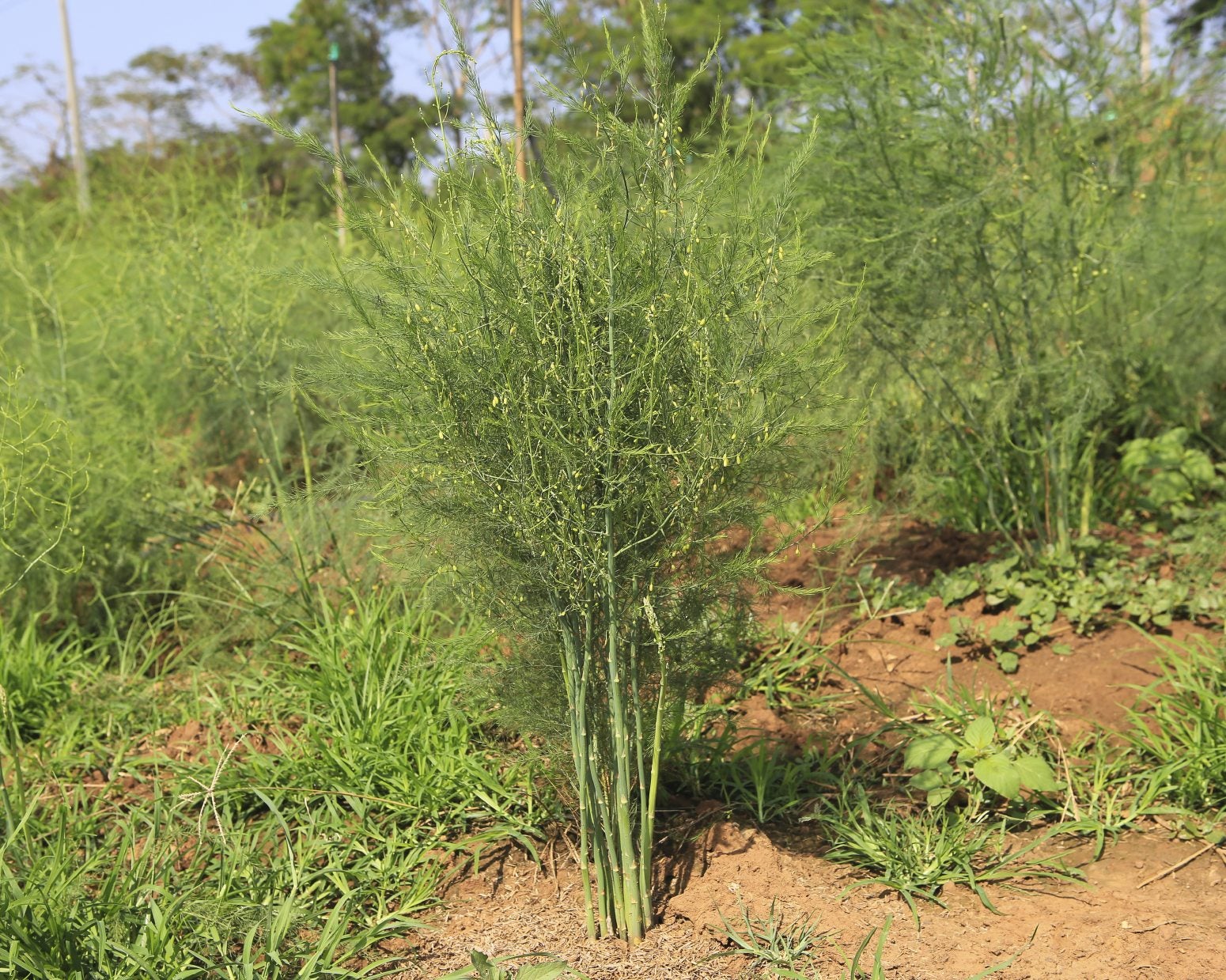

An old method of controlling weeds in the asparagus patch was to pour the water from an ice cream maker over the bed. The salty water did indeed limit the weeds but over time it collects in the soil and can cause problems. Know how to use salt on asparagus and when too much is too much for these delicious plants.
Using Salt on Asparagus Weeds
One of the first spring vegetables is asparagus. The crisp spears are perfect in a variety of preparations and adapt well to a host of cuisine types. Asparagus are perennials which grow from crowns planted 6 to 8 inches (15-20 cm.) beneath the soil surface. This means deep hoeing is not an option to get rid of weeds. Using salt for weed control is an old farm tradition, and while the high salinity does kill some annual weeds, persistent perennial weeds may be resistant, and the practice leaves an excess of salt in the bed which can be detrimental to the asparagus. However, there are other safer methods than using salt on asparagus weeds. It is not a good idea to use salt in asparagus soil unless you plan on testing the salinity of the soil annually and stop when it begins to reach high levels. High levels of salt in asparagus soil can impede percolation and water drainage. Over time the saline will build up to a level that will even kill a salt tolerant plant such as asparagus. That will destroy your crop of tender spears and waste the three years you had to wait for your bed to produce well.
Other Methods of Asparagus Weed Control
Our ancestral farmers knew how to use salt on asparagus and when to stop the practice to prevent poisoning the soil. Today, we have several different tools available to us and do not have to resort to salt for weed control.
Hand Pulling Weeds
You were given hands for a reason. One of the simplest methods of weed control that is non-toxic and creates no buildup of salt or other chemicals in the soil is hand weeding. It is even organic! Hand weeding is also effective, but it doesn't work quite as well in large asparagus beds. Light tilling can be done in early spring before the spears have begun to show. The shoots are quick growers and using salt on asparagus weeds can burn the tender new spears. Hand weeding is tedious, but useful to most home gardeners. The tough part is getting the roots of perennial weeds, but even removing the greenery will eventually weaken the root and kill the weed over time.
Using Herbicides for Asparagus Weeds
Modern farm practices include the use of pre-emergent herbicides to prevent weed seeds from sprouting. Corn gluten meal is non-toxic and has pre-emergent properties. It may safely be used on the entire bed every four weeks. Use caution when applying to beds with germinating seeds, as it will impede sprouting. Another method is the use of post emergent herbicides. Use it after the last harvest when no spears are above the soil or in early spring broadcast it over the entire bed before shoots appear. Make sure no herbicide contacts the plant material or you could kill the crowns, as the products are systemic and will leach through the vascular system to the root. It is safe to use as long as the product only contacts soil and will remain in the soil to kill sprouting weeds. Any of these methods is safer and more effective than salt in asparagus soil.
Gardening tips, videos, info and more delivered right to your inbox!
Sign up for the Gardening Know How newsletter today and receive a free copy of our e-book "How to Grow Delicious Tomatoes".

Bonnie Grant is a professional landscaper with a Certification in Urban Gardening. She has been gardening and writing for 15 years. A former professional chef, she has a passion for edible landscaping.
-
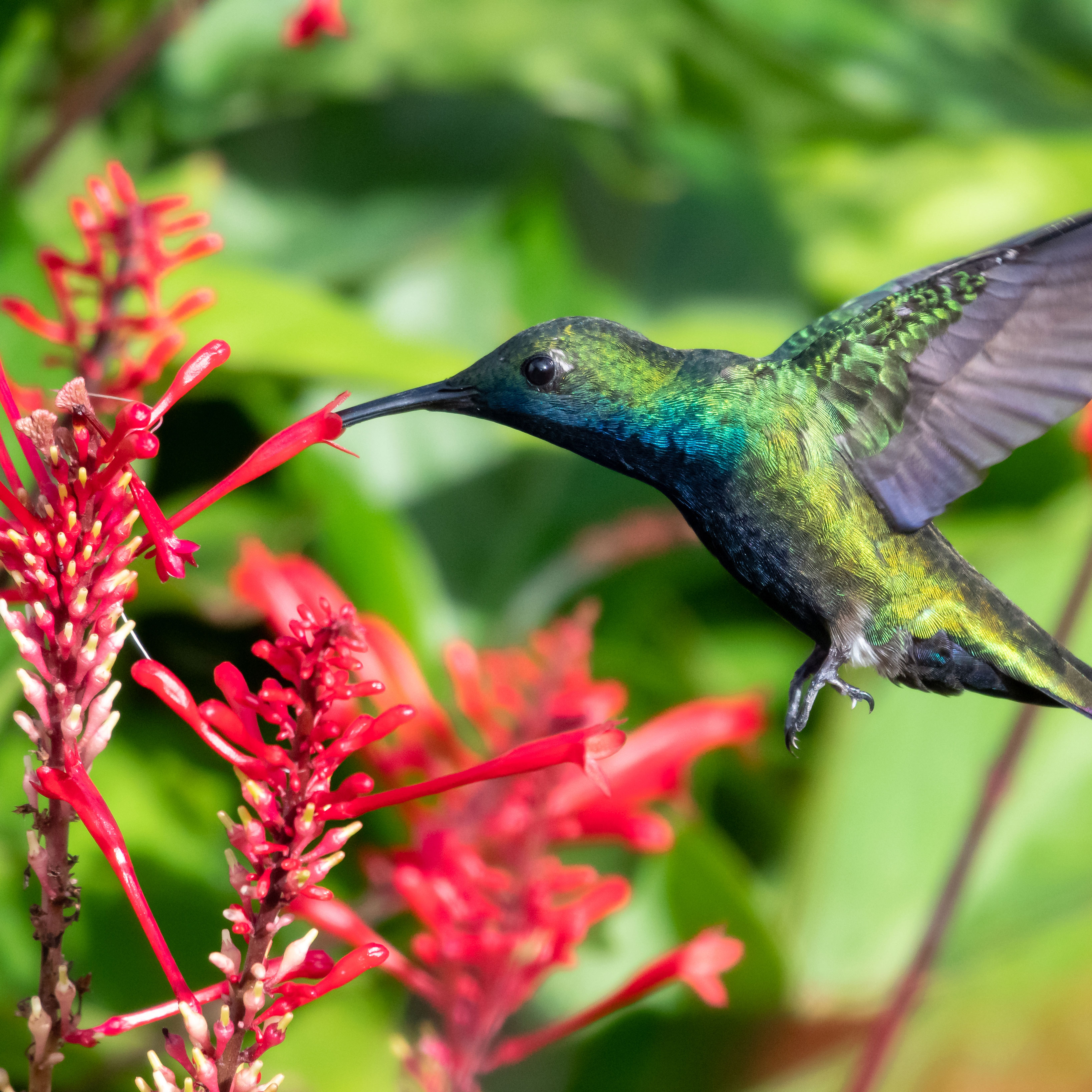 Terrifically Tubular Flowers For Hummingbirds: 9 Tube-Flowered Plants To Attract Hummers
Terrifically Tubular Flowers For Hummingbirds: 9 Tube-Flowered Plants To Attract HummersGrowing tubular flowers for hummingbirds helps you create the optimum feeding conditions for your winged friends. Here are nine tubed delights for hummers
By Tonya Barnett
-
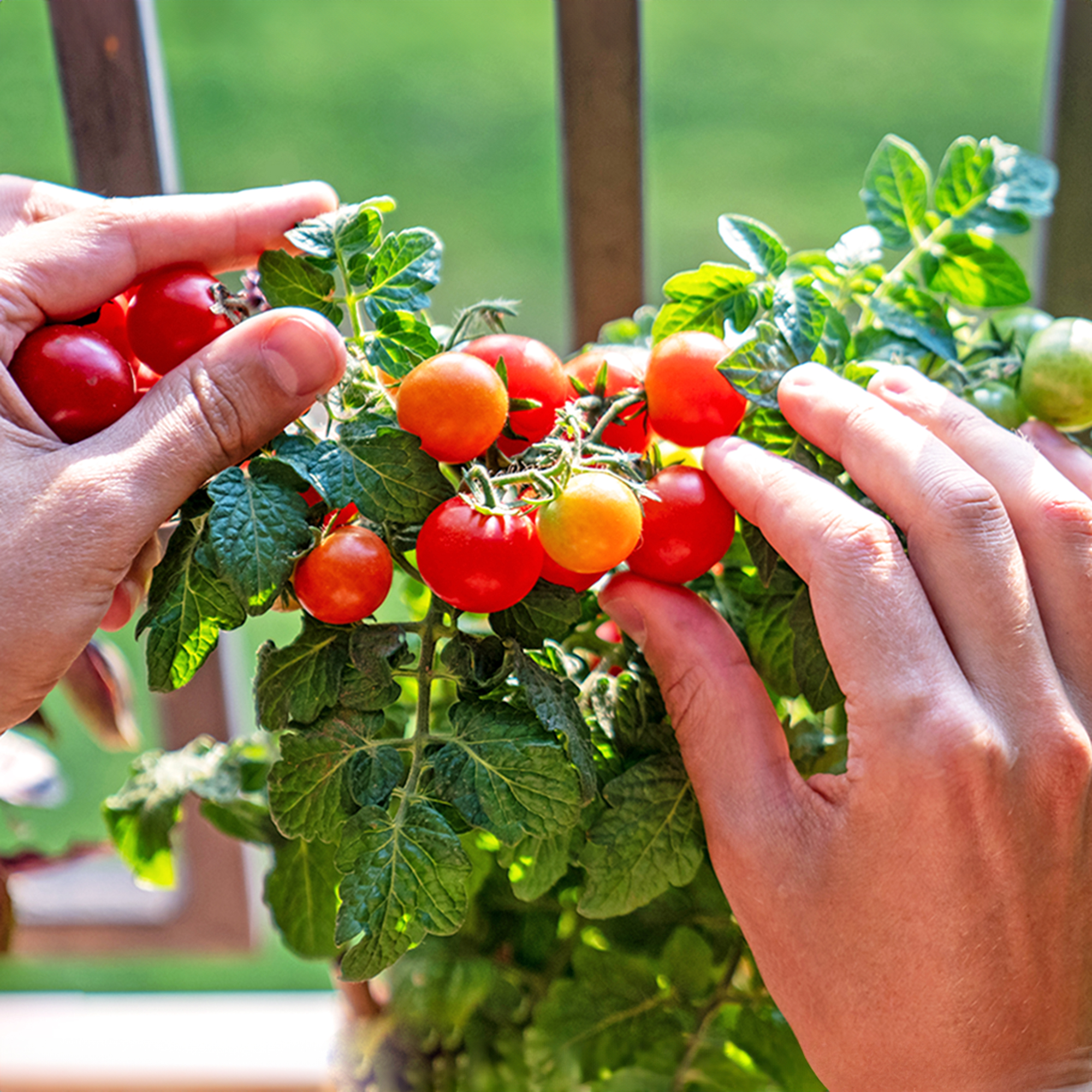 How To Grow Hydroponic Tomatoes For Fresh Indoor Harvests – No Soil Required
How To Grow Hydroponic Tomatoes For Fresh Indoor Harvests – No Soil RequiredLearning how to grow tomatoes in water is easy and allows you to harvest fresh-home-grown produce in every season without any mess.
By Ellen Wells
-
 What Is White Asparagus – How Does White Asparagus Grow
What Is White Asparagus – How Does White Asparagus GrowHere's a real head-scratcher. There are no varieties of white asparagus! So how does white asparagus grow? Read on to find out.
By Laura Miller
-
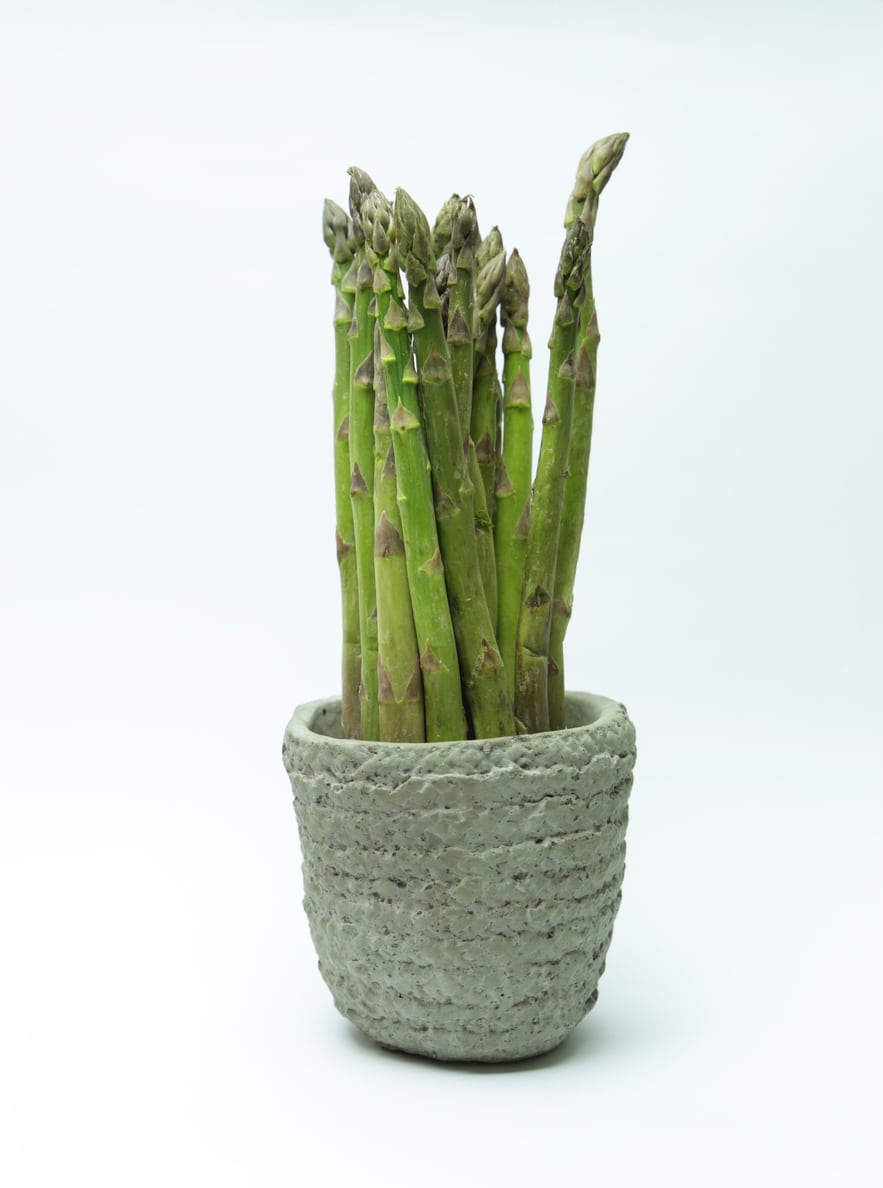 Potted Asparagus Plants – Can You Grow Asparagus In Containers
Potted Asparagus Plants – Can You Grow Asparagus In ContainersThe introduction of new asparagus cultivars has made the process of growing and caring for these plants easier than ever before. But can you grow asparagus in a pot? Click on the following article to learn more about container grown asparagus plants.
By Tonya Barnett
-
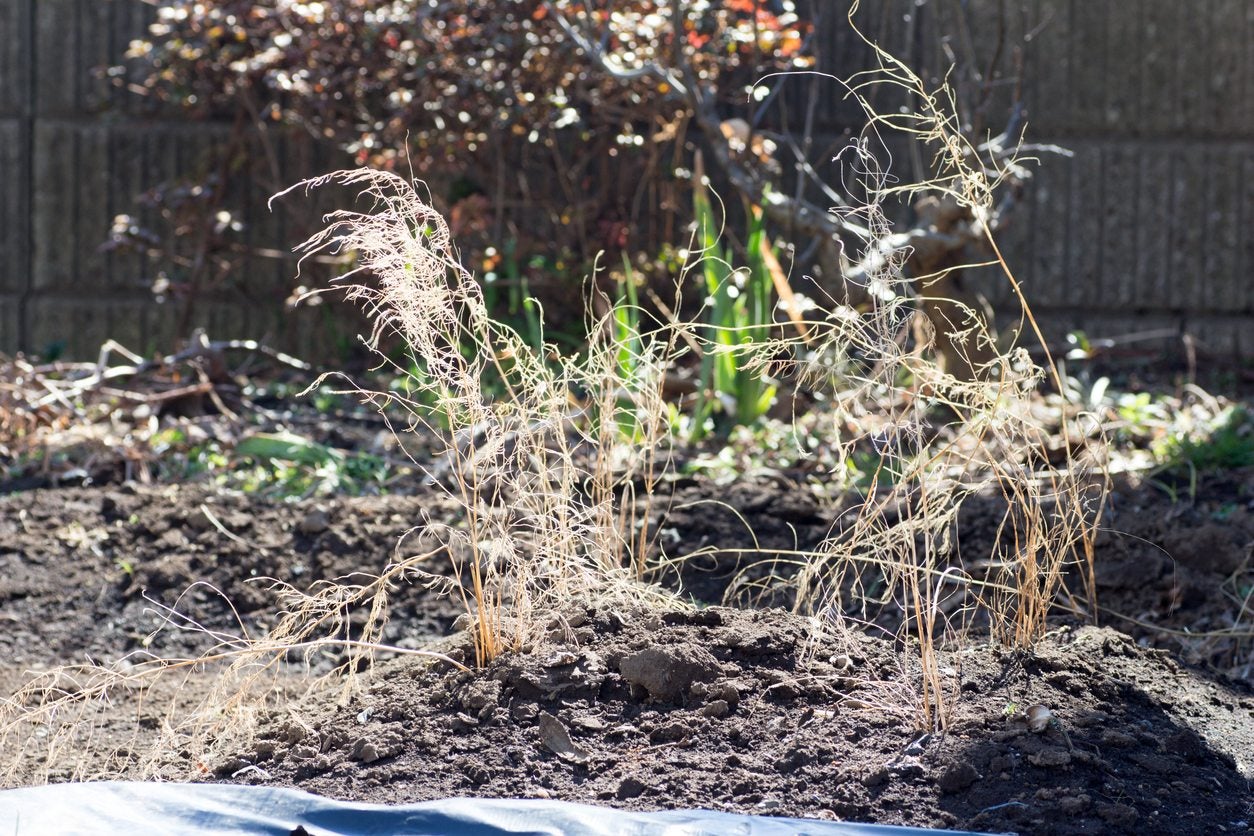 Asparagus Winter Care: Tips On Winterizing Asparagus Beds
Asparagus Winter Care: Tips On Winterizing Asparagus BedsOnce established, asparagus is fairly low maintenance with the exception of keeping the area weed free and watering, but what about overwintering asparagus plants? Do asparagus need winter protection? Find out in this article.
By Amy Grant
-
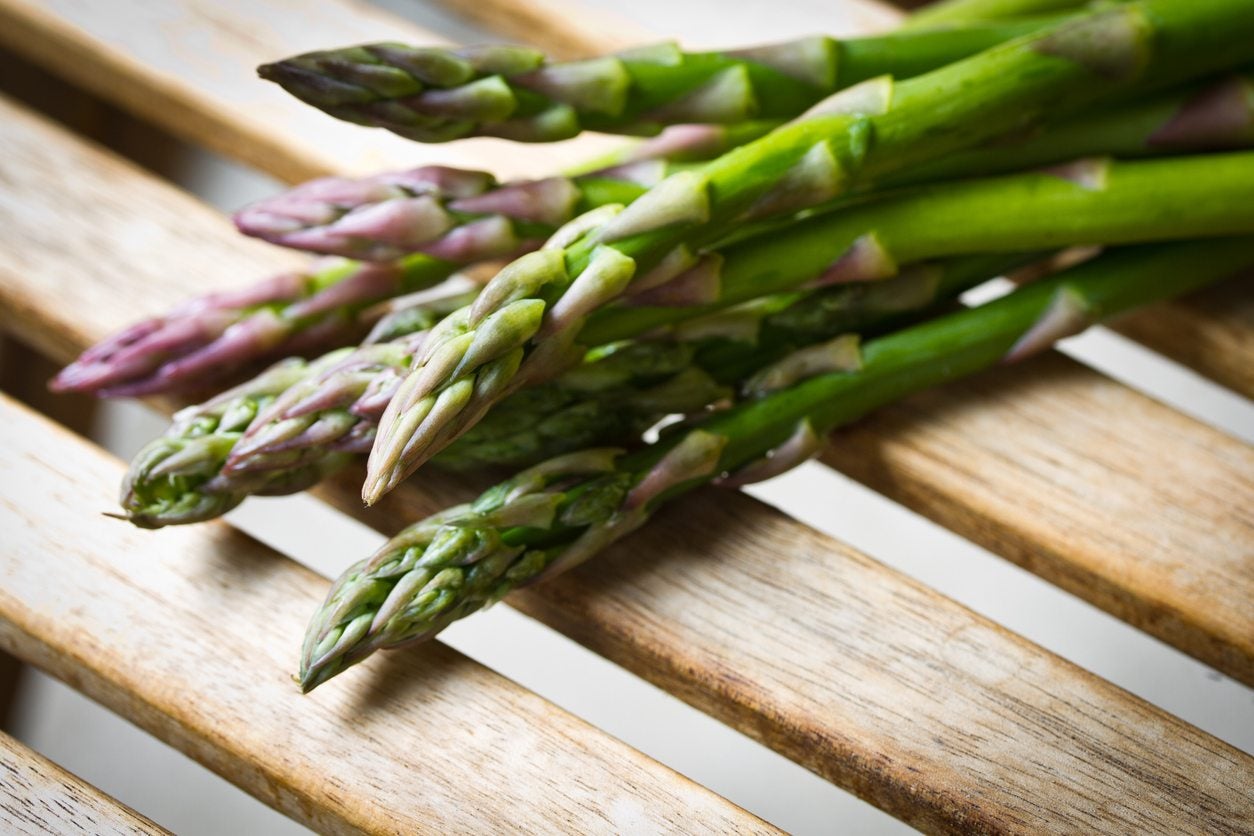 What’s The Difference Between Male And Female Asparagus Plants
What’s The Difference Between Male And Female Asparagus PlantsWe all know that some plants have male reproductive organs and some have female and some have both. How about asparagus? Are there really male or female asparagus? If so, what's the difference between male and female asparagus? Find out here.
By Amy Grant
-
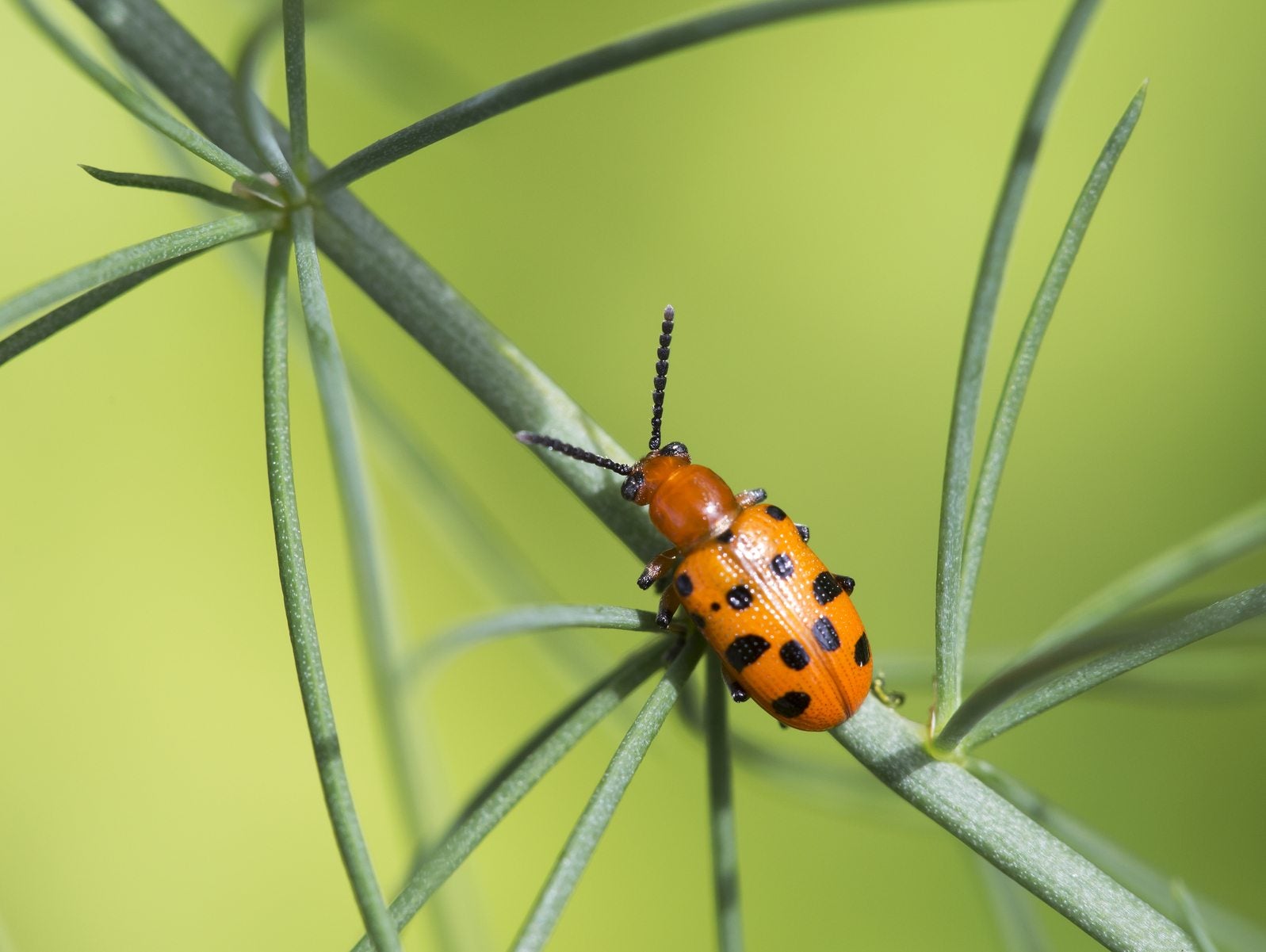 Spotted Asparagus Beetle Facts: Controlling Spotted Asparagus Beetles In Gardens
Spotted Asparagus Beetle Facts: Controlling Spotted Asparagus Beetles In GardensIt can be especially devastating when an asparagus patch falls victim to pests. One very common asparagus pest is the spotted asparagus beetle. Learn some spotted asparagus beetle facts and how to prevent spotted asparagus beetles in this article.
By Liz Baessler
-
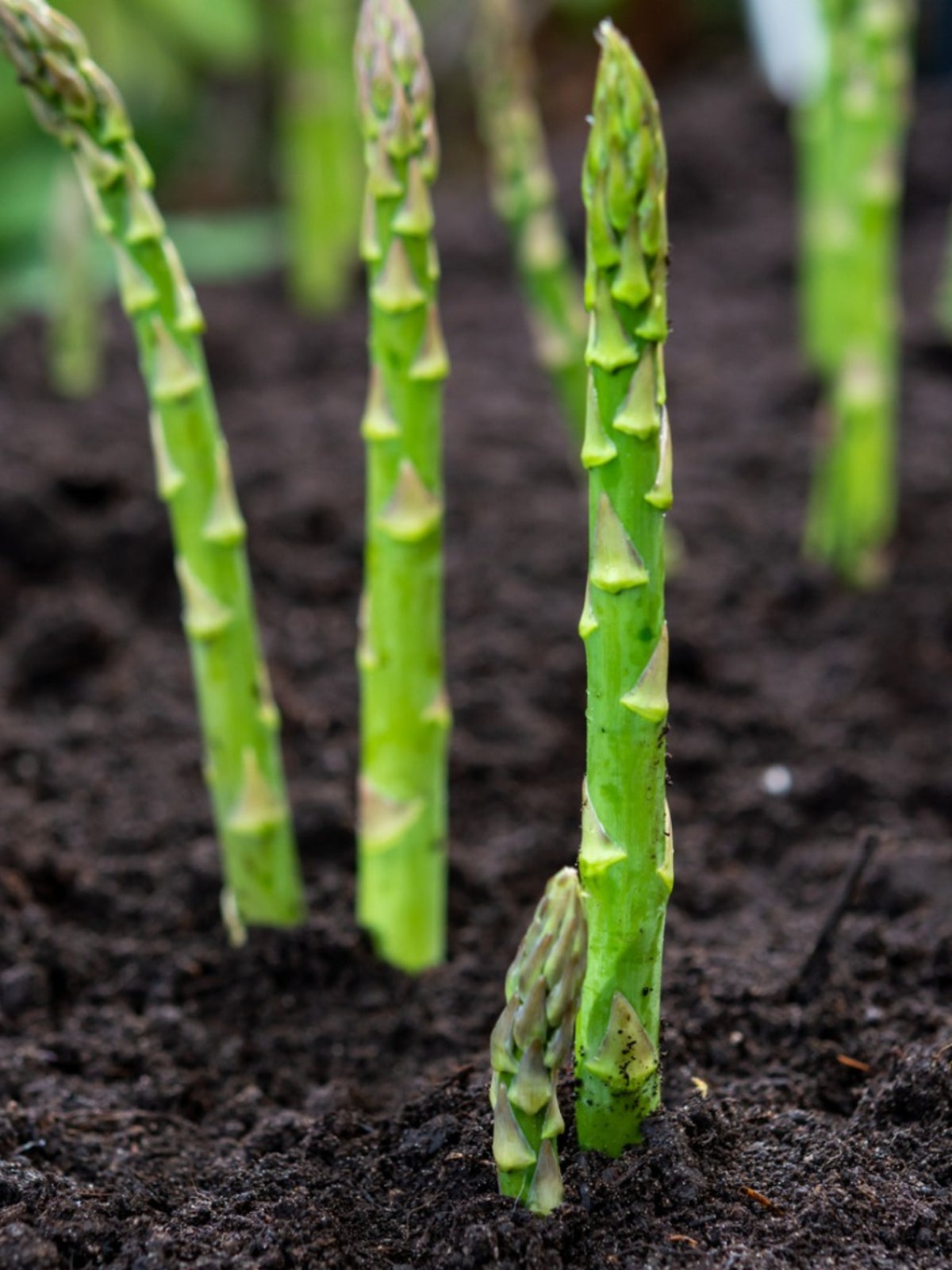 What Is Asparagus Rust: Tips On Treating Rust In Asparagus Plants
What Is Asparagus Rust: Tips On Treating Rust In Asparagus PlantsAsparagus rust disease is a common but extremely destructive plant disease that has affected asparagus crops around the world. Learn more about asparagus rust control and treatment in your garden using information from this article.
By Mary H. Dyer
-
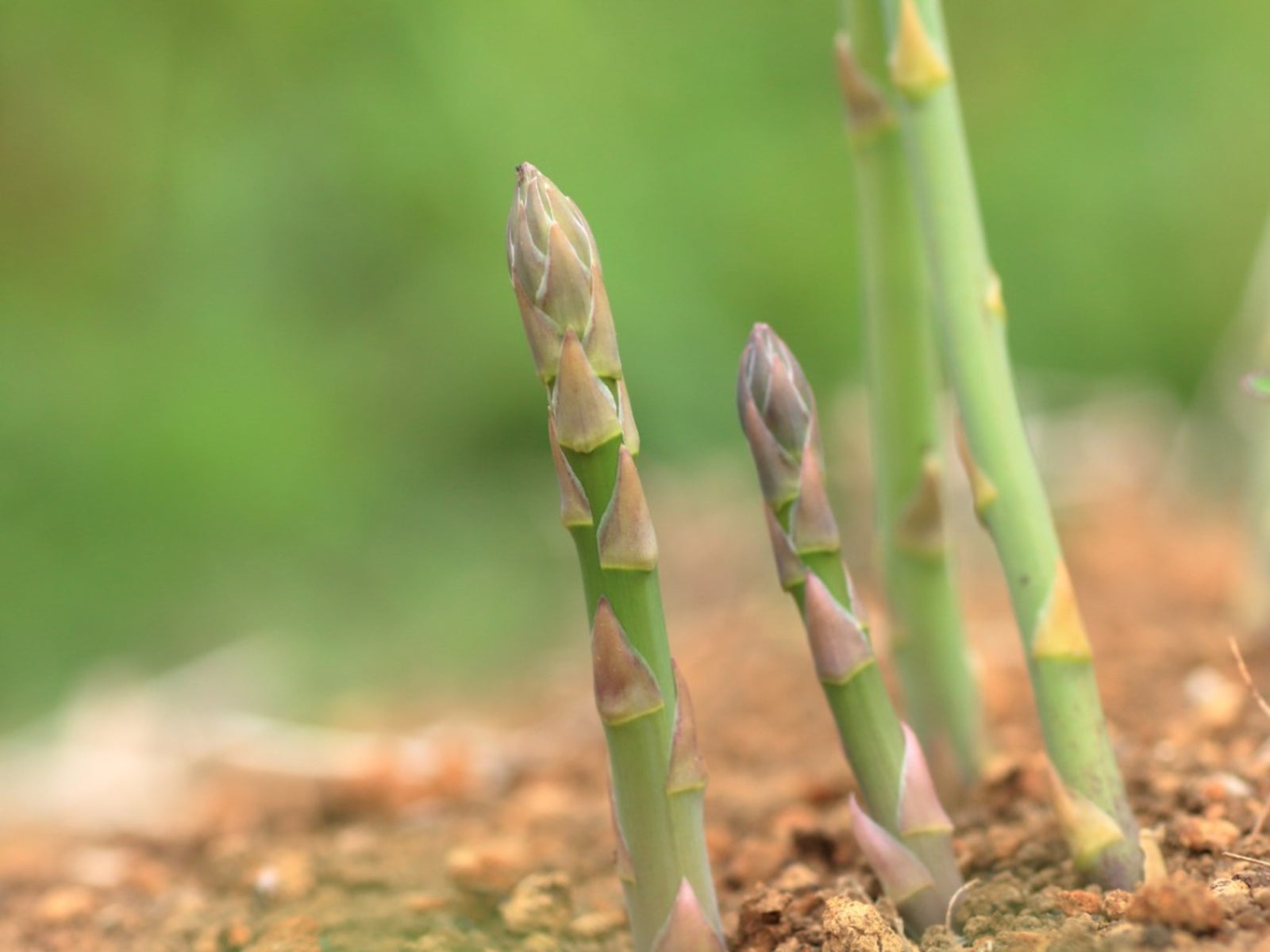 Rotting Asparagus Plants: Treating Asparagus Crown And Root Rot
Rotting Asparagus Plants: Treating Asparagus Crown And Root RotAsparagus crown and root rot is one of the most economically disastrous diseases of the crop worldwide. Asparagus crown rot is caused by three species of Fusarium. Learn more about controlling asparagus fusarium crown rot and root rot here.
By Amy Grant
-
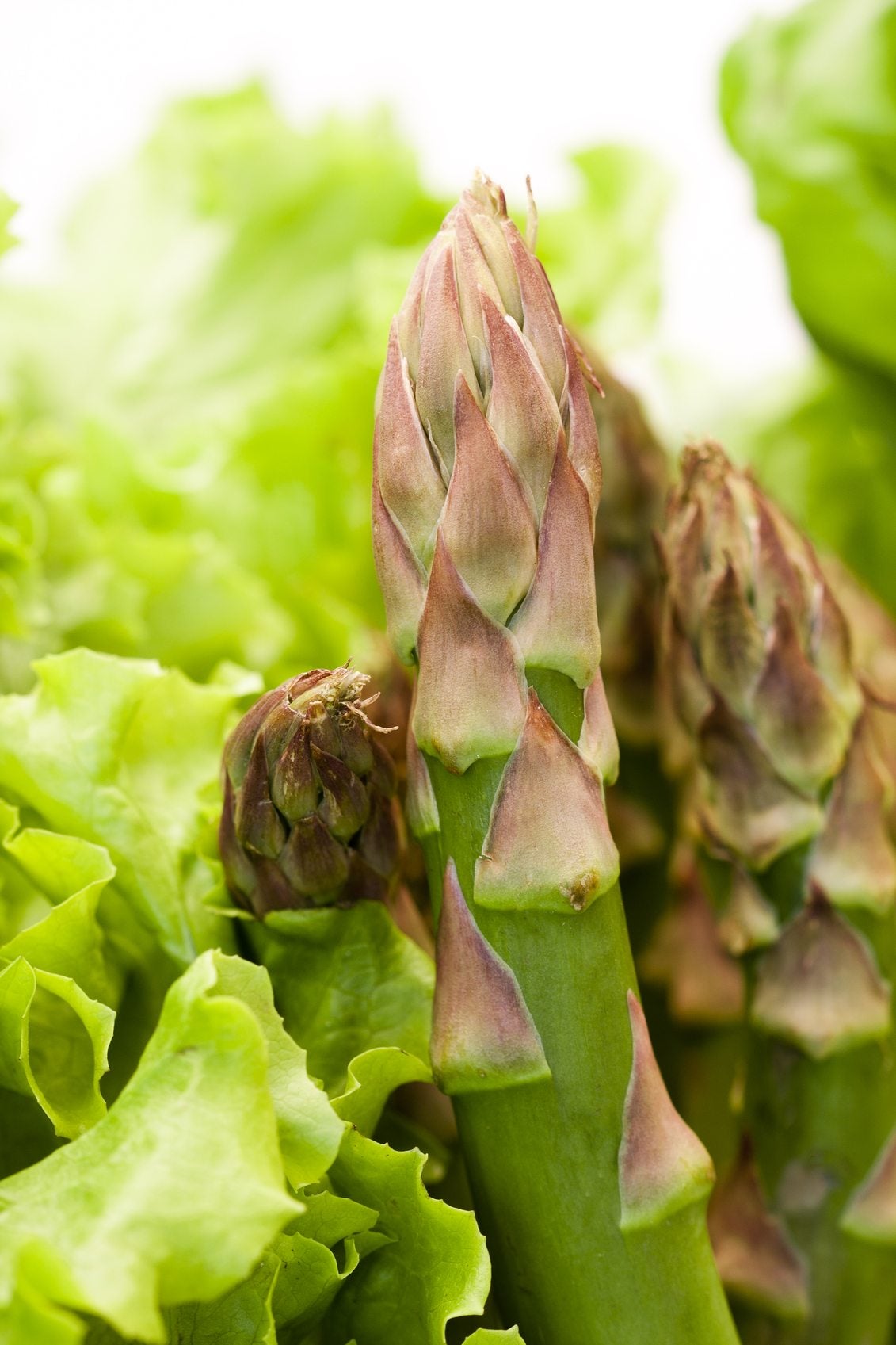 Asparagus Companion Plants – What Grows Well With Asparagus
Asparagus Companion Plants – What Grows Well With AsparagusAsparagus plant companions are plants that have a symbiotic relationship, one that is mutually beneficial to each. In the following article, we will discuss the benefits of companion planting with asparagus and what grows well with asparagus.
By Amy Grant